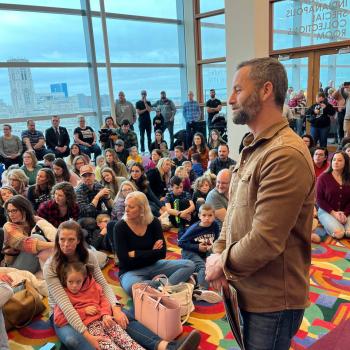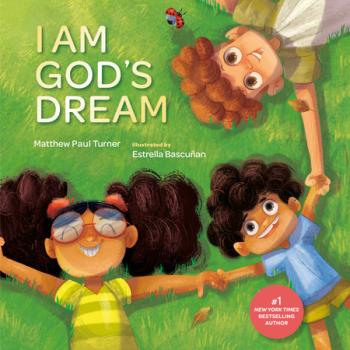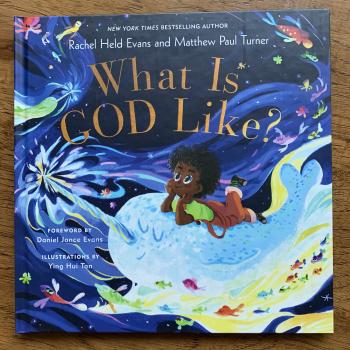The title of this X-Files episode, “Familiar,” is a perfect pun. The episode explores the idea of a witch’s familiar, but also the familiar unleashing of more mundane evil in small town America.
The episode plays on the creepiness of characters in children’s television shows, at least when they are viewed from an adult perspective. Between that, the prospect of children being abducted and murdered, and the introduction of witchcraft, the episode focuses on some of the things that scare human beings most.
Yet the episode also challenges those fears at the same time, or at least challenges the focus of them. And I was particularly struck by the religious elements connected with the way that is done. A small part of a church service for a child who has been killed embedded in the episode, and it is in that context that some of the truth about things going on behind the scenes begins to emerge. But more than that, one of the characters admits to having let the devil into his soul, not by practicing witchcraft, but by breaking a sacred commandment, allowing lust to dwell in his heart and then committing adultery. For that reason, he suggests, he is being punished, as he himself through his wicked thoughts and actions has opened the gates of hell.
In the episode, however, it is not as though God is punishing him for his actions. Rather, it is the adultery itself which has caused hatred on the part of his wife towards him and his lover. We see rage run rampant in an irrational fashion, leading a grieving father to beat up and then shoot and kill a convicted pedophile that he assumes is responsible for having killed his son. The question of whether witchcraft is a real thing is, ultimately, completely irrelevant. Whether the weapons be spells or guns, it is we human beings who bring harm upon our families, our children and spouses, our entire communities.
The treatment of the man on the sex offender registry works very powerfully in the episode. The man actually has a mask of the creepy character Mr. Chuckleteeth (as well as a live monkey in a cage, balloons, and much else) in his house. He is a perfect suspect. Yet, as Mulder notes, he is “too perfect” and that in itself should cause one to look more closely, to remember our principle of considering individuals – regardless of their past – as innocent until proven guilty. In this case, it turns out that the rape for which he was placed on the registry was statutory – perhaps when he turned 18, and his girlfriend was still 17, her unhappy parents decided to press charges against him. He also worked as a performer at birthday parties, and there turned out to be video evidence as a result that showed he was performing miles away at the time the boy was killed. And so the episode doesn’t just explore our fears, but highlights that those fears themselves cause much suffering. Indeed, they perpetuate the things that make us afraid, since once we fear our neighbors, we don’t get to know them, and distrust leads to isolation leads to still greater distrust, and so on in a vicious circle.
The episode also highlights that the ones we really need to worry about are not the creepy looking characters with crooked eyes, but the seemingly respectable citizens, police chiefs for instance, who engage in adulterous relationships and unleash powerful and dangerous forces of a non-supernatural sort that can nonetheless “curse” them and their communities.
The episode made me wonder how often it has been the case that stories of monsters and witchcraft were developed in the past precisely so as to provide a scapegoat for the mundane human monsters that are the actual source of tragedy. When a child was killed in distant centuries past, was the reason for blaming witchcraft precisely to avoid exploring the possibility that the killer might be someone known to all, and the motive might be jealousy or revenge or anger rather than some inhuman power?
I continue to have ambiguous feelings about the X-Files. On the one hand, it seems to delight in playing on the very fears that cause many of our problems, sowing distrust and fostering conspiracy thinking. Yet on the other hand, at least during this last season, it seems to also be digging deeper and challenging that very propensity for fear that leads us to “trust no one.”
Of related interest, see the Washington Post article about research into fear for safety and how it relates to our alignment as conservatives or liberals, the Christian Century article about racism as the worst kind of mass hysteria (with very direct links to themes central to The X-Files), and Verso on history as a way of learning.













